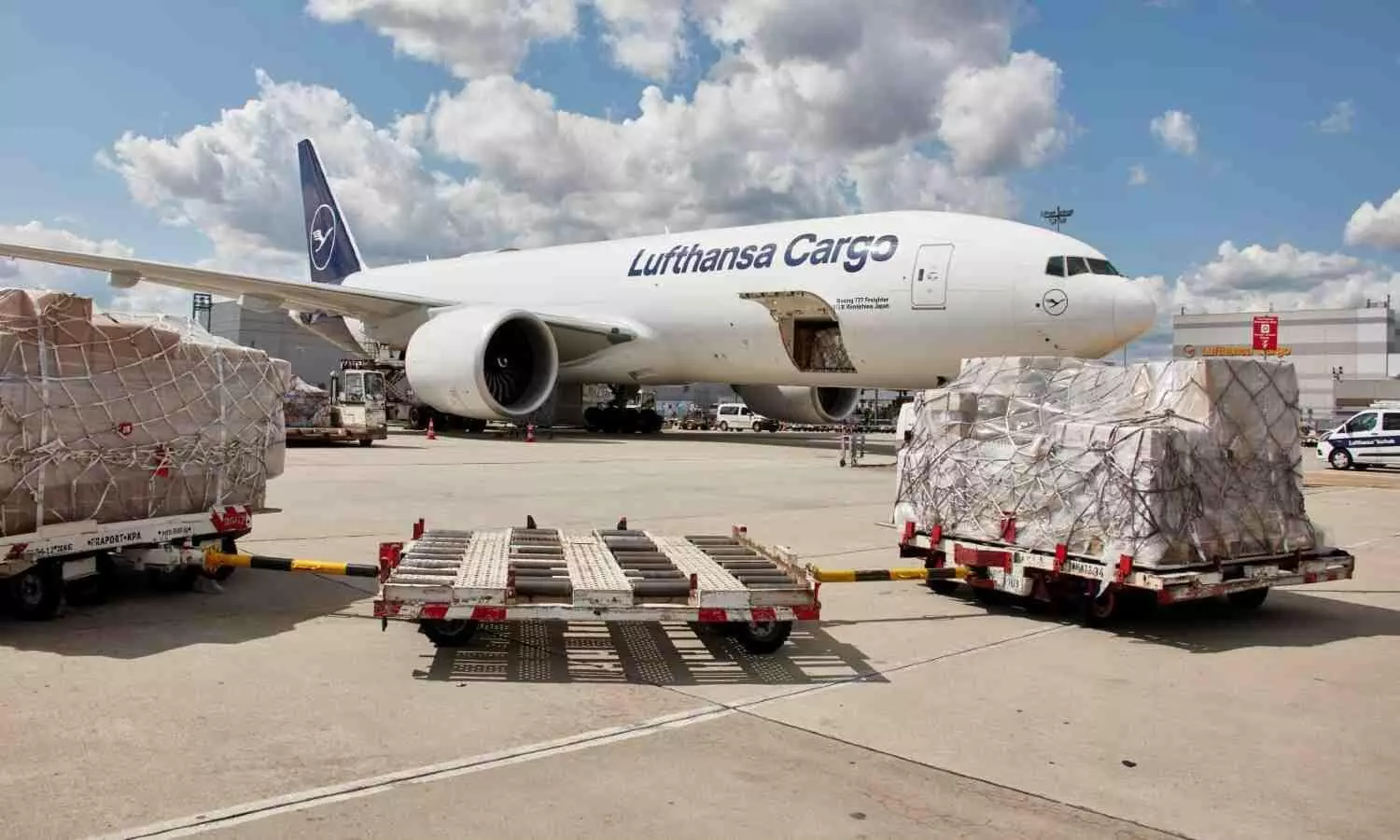
Lufthansa Cargo focuses on sustainability, digitalisation, eCommerce
Lufthansa Cargo names the future drivers of the airfreight industry ahead of Aviation Day (August 19)

What does the future of the airfreight industry look like? On this year's Aviation Day, August 19, Lufthansa Cargo will once again ask this question because the industry is currently facing major challenges.
"We are currently experiencing various upheavals within the airfreight industry. Sustainability, digitalisation and booming online trade are playing a central role. In order to be able to master this, we are relying on decisive and dynamic action along with all stakeholders in the industry. This is the only way we can remain fit for the future and live up to our responsibility as one of the world's leading air freight companies and enabling global business," says Ashwin Bhat, CEO, Lufthansa Cargo.
Strengthening the eCommerce business at Frankfurt Airport
Lufthansa Cargo recently presented its ambitious plans for Frankfurt Airport: the airport is to become one of the world's most important eCommerce hubs. Together with two subsidiaries - the logistics service provider heyworld and the customs clearance agency CB Customs Broker GmbH - Lufthansa Cargo is proactively drivingthe expansion of the eCommerce business at Frankfurt Airport.
"A decisive success factor for online retailing is the resilience and speed of the supply chain. We want to make Frankfurt a leading location in this segment by offering holistic solutions for shipping, customs clearance, and onward transport of eCommerce shipments," says Bhat.
In addition, full-service customs agency CB Customs Broker announced a partnership with handling expert GEORGI Handling. To promote eCommerce business in Frankfurt, both companies are creating a new eCommerce terminal in Cargo City South, which will be another important base for the Asian market.
Expansion of the intra-European route network
Lufthansa Cargo has been serving destinations in the short- and medium-haul segment with A321F freighters for more than a year and put its third aircraft into service at the end of June. A fourth freighter will join the fleet as of September. With the A321 fleet doubling in size to four this year, there are new opportunities for capacity and route network expansion, whether in the scheduled or charter business.
Currently, Lufthansa Cargo offers more than 50 weekly flights to 14 destinations, providing customers with a direct connection for their cargo to the hub in Frankfurt. The latest additions to the route network are Casablanca, Yerevan and Tunis. Further adjustments and extensions to the flight schedule on short- and medium-haul routes associated with the fleet expansion are currently still being planned to connect various economy centres.
Digitalisation initiative launched with Kühne+Nagel
A few weeks ago, Lufthansa Cargo, together with its long-standing customer Kühne+Nagel, succeeded in transporting 100 percent general cargo by electronic air waybill as well as the digital accompanying documents between Germany and Hong Kong. This first purely "paperless route" is the starting signal for the introduction of "paperless corridors" for efficient and resource-conscious transports between Europe and Asia.
Lufthansa Cargo invests in sustainable measures
Lufthansa Cargo is as ambitious in terms of sustainability: by 2030, at the latest, the firm hopes to have cut its carbon footprint in half compared to 2019 and be CO2-neutral by 2050. Lufthansa Cargo is a pioneer in the industry, for example, by the adoption of the EU rule ReFuelEU: A binding quota of renewable fuels for aviation has been specified in the most recent confirmed Trilogue on the EU ReFuel Aviation Regulation. For example, by 2025, at least 2 percent SAF must be used, and at least 6 percent by 2030. SAF decreases CO2 emissions by up to 80 percent when compared to fossil fuels.
Today, Lufthansa Cargo is already achieving the first mark of two percent: In 2022, the SAF share in the fuel consumption of Lufthansa Cargo freighter aircraft was already 2.1 percent. In addition to renewable fuels, the company is also focusing on continuous fleet modernisation, fuel efficiency and digitalisation. "We see great potential in AI-based applications and have already integrated them into our services. From eBooking to eTracking, we now offer our customers extensive options along the transport chain. If we want to sustainably improve the industry's carbon footprint, we must use every opportunity to further reduce our CO2 emissions," says Nicole Mies, Head of Communication and Corporate Responsibility, Lufthansa Cargo.

